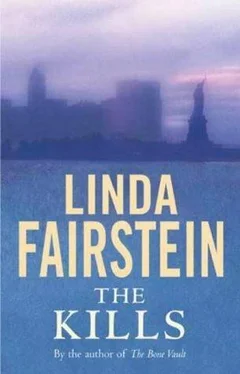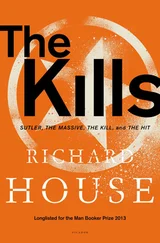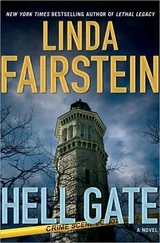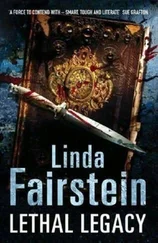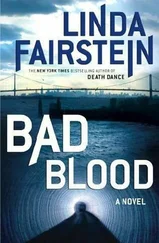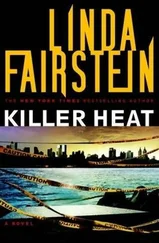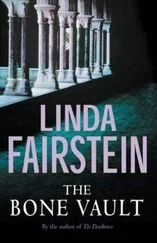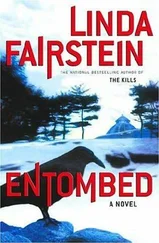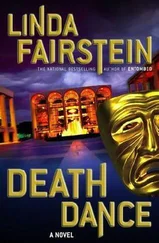"Like what?" I was making more of a mess, agitated by Peter's suggestion.
"I'm not sure, Alex. But Andrew-well, when I see you-"
"I'll call you back later. Let me look around." There was also three days of mail at home that I had not even touched, other than to pay some of the bills.
Mike had followed me in. "What'd that loser want?"
"To see me alone. Without you-or my goons, as he so politely implied. He says Tripping thinks Paige Vallis ran into her killer on her way from sending some midnight missive to me. Does that make sense to you?"
"That I'm a goon?" Mike was lifting papers and shuffling through things on my desktop. "Nah."
"I mean the letter to me."
"Like a suicide note? Like she sent you an apology for causing you such a hard time at the trial and then choked herself to death in her hallway? I don't think so."
"I don't either. Wouldn't she have called to tell me what she wanted to say, or if she was frightened, left me a message that she was mailing me something?"
"He's a whackjob, the Tripping guy. A complete paranoid. Next thing Robelon's going to tell you is that she sent you a letter recanting her allegations, saying she made up the whole story about the rape. That's what he and Tripping want you to believe. That and the fact that the mailman lost the letter."
"You're probably right."
"Sure I am. This way, you don't just dismiss the indictment against him in a couple of weeks, you get to exonerate him completely, with Vallis permanently out of the way."
I looked up at Mike. "Good thinking."
"Yeah, that one goes in the dead-letter department. What's next?"
"I thought we'd take a ride over to Chelsea Piers. Try to catch up with the happy campers before the child welfare agency lawyers cut out. See what went wrong at this morning's meeting between Dulles and his dad, and what the thinking is about the Hoyts as prospective parents," I said, and filled him in on what Robelon had told me.
"Nice day for an outing. Saturday afternoon on the river. Sure you didn't have enough water this week?"
"The sun's out now, it's a crisp fall day. I'll spring for hot dogs. If we get lucky, Hoyt's chef'll cook you a meal."
It was a little after one o'clock when we left the office and drove across Canal Street to get to the West Side Highway. "Don't ever tell my mother I took you to the Chelsea Piers. You know her and her superstitions. All bad things come in threes," Mike said.
"So what were the first two?"
"That's where the Titanic was supposed to dock on its maiden voyage, before that ice cube got in its way. And the Lusitania ? She sailed from Chelsea on her regular run to London when the U-boat got her."
"You look at the place now and it's hard to believe it was the world's premier passenger ship terminal once." We drove north to Twenty-third Street, crossing onto the Hudson River Boulevard and parking in one of the large lots.
The Chelsea Piers, opened in 1910 to house the Atlantic's luxury liners, were a stunning urban design complex by the same firm that built Grand Central Terminal. The elegant row of gray buildings, edged with pink granite facades, took the place of a mess of crumbling, old waterfront structures of the nineteenth century.
In both world wars, the piers became the embarkation point for soldiers heading off to battle. By the 1960s, when air travel had made most ocean crossings obsolete, the decaying buildings were converted to cargo facilities. And when that part of the business relocated to the ports of New Jersey a decade later, the once-grand piers were demoted to use as warehouses, car pounds, and sanitation-truck repair stations.
By 1995, after a few years' work based on a proposal by three smart developers, the four surviving Chelsea Piers-numbered 59 through 62-were transformed through a $100 million project into a spectacular center for public recreation right on Manhattan's waterfront. Golf driving ranges, batting cages, roller rinks, bowling, an equestrian center, and a marina that could handle yachts like Graham Hoyt's were only some of the amusements available on the Piers.
"What's your guess?"
"Let's start at the boat. At least the crew is bound to be there, someone who should know where Hoyt and the kid are," I said.
We took the promenade south of what they called the golf club and walked along yachts in the marina, looking for the Pirate. There was a warm breeze coming off the water, and although it seemed a bit choppy, it was deep blue and clean. A maze of small boats crisscrossed the river, and the commuter ferries worked the waves in both directions.
Graham Hoyt saw us before we spotted him. He was behind us, coming from one of the other parking lots. "You have any jurisdiction on the high seas, Detective?"
"Aye, aye, Cap-what do you need?"
"Left here twenty minutes ago to take Ms. Taggart back to her car and answer some questions for her. Could have sworn I had ninety-eight feet of a fine-looking boat sitting right at the end of that dock," he said, pointing. "Grand larceny, I think."
The small tender, the Rebecca, was tied up, but the slip for the larger vessel was empty.
"Are you serious?" I asked.
"Either that or my crew has mutinied, Alex. Maybe I worked them too hard on the way down from the islands."
He was laughing, so it was clear that no one had made off with the boat.
"Where's the boy, Mr. Hoyt?" Mike asked.
"Jenna took him over to one of those buildings in the sports complex. Todd, our first mate, was going to hit some balls with him, just play and hang out. Let him be a kid for a change. Guess the captain decided to go for a ride in the meantime. Want to go have a look for Dulles and my wife?"
"Sure."
We retraced our steps at Mike's suggestion. "The batting cages are in the field house, up between the first two piers. Eighty thousand square feet of pure heaven for a kid. This was a good idea of yours. They've got hoops there as well as baseball and gymnastics equipment. You ever been here before?"
Hoyt shook his head. "Only the marina."
Mike was leading the tour. "That's the building where they film all the TV shows, you know, like-"
"Graham!"
A woman was screaming Hoyt's name at the top of her lungs. The first two times we each heard it and looked around, unable to find her among the hordes of adolescents who had taken over the Piers' activity centers on the busy weekend.
"Jenna-what is it?"
I turned and saw a diminutive woman running toward Hoyt. She was dressed in a T-shirt, cotton slacks, and sneakers. Her face was contorted into an expression suggesting she was in pain, and she was weeping as she came at us.
"What's the matter?" he said, grabbing both arms and trying to calm her down. "Is it Dulles? Where is he?"
She caught her breath and tried to speak. "He's okay. But it was frightening, it was terribly frightening."
The more she tried to talk, the harder she cried.
"Tell me what it is," Hoyt said, sternly now, enunciating each word between clenched teeth, ordering her to explain whatever had happened.
"Mrs. Hoyt," I said, trying a softer approach by putting my arm around her shoulder and taking her hand in mine. "Please tell-"
She ignored me and talked to her husband. "It was Andrew. That meeting he had with Dulles this morning, before Nancy Taggart brought him here? Andrew was angry that it broke up so abruptly."
She stopped again to take some deep breaths.
"Damn it," said Graham. "He just can't let go of the boy."
"Andrew actually followed them here. That Taggart woman must be an idiot," Mrs. Hoyt said, her tears replaced by anger. "She led him right to us."
"Did Andrew do anything? Did he go anywhere near Dulles?"
"No, not that close. But-"
Читать дальше
